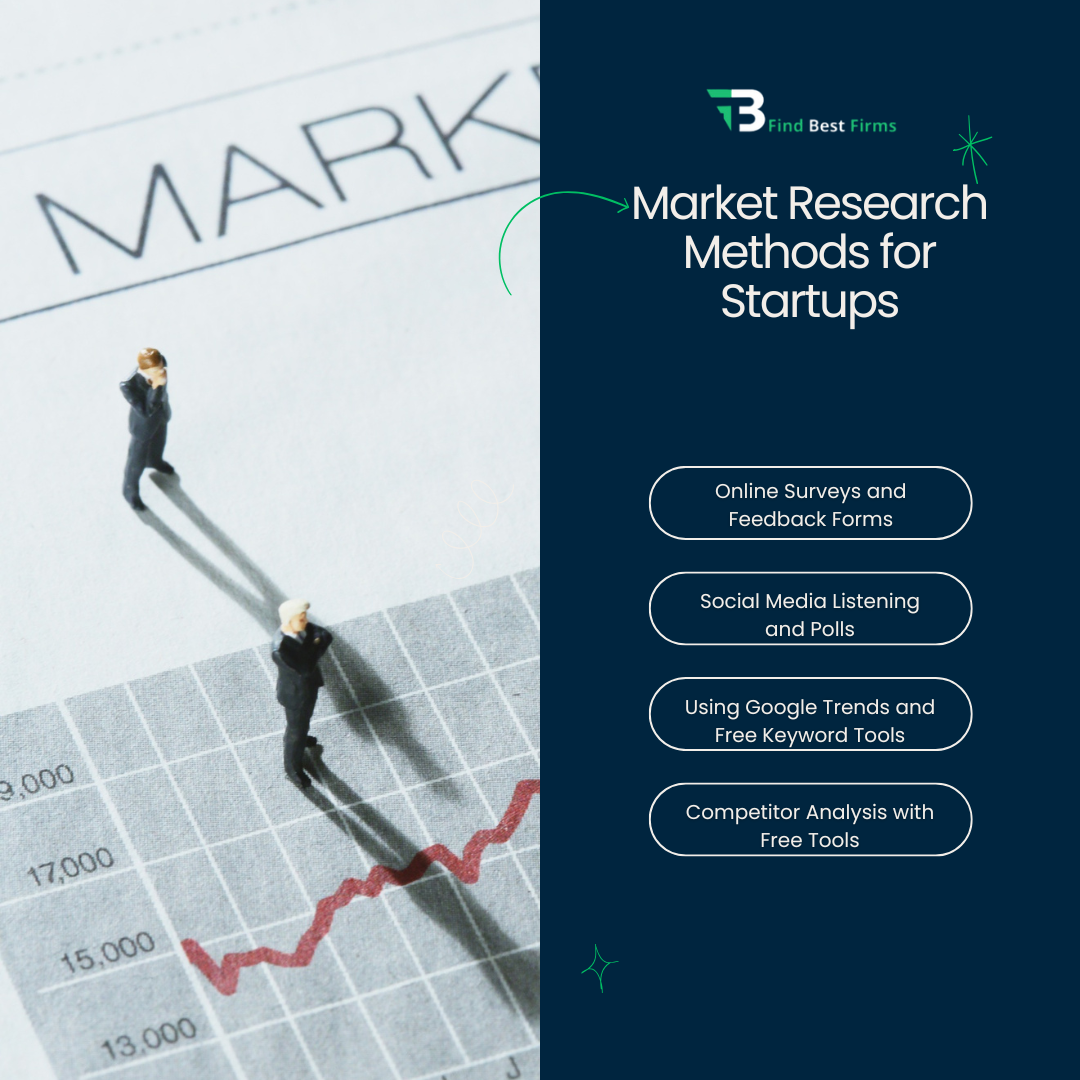Launching a startup is one of the most thrilling and rewarding journeys a person can take. But it’s also one of the riskiest. Statistics show that over 90% of startups fail, and a major reason is building a product or service without fully understanding what the market actually needs.
Launching a startup is like stepping into uncharted territory. Every decision you make in those early stages from your product idea to your target audience can determine whether you soar or sink. That’s why one of the most overlooked yet powerful tools for startup success is market research.
For new startups, entrepreneurs, and small business owners, market research isn’t just a formality. It's a foundation. It provides the insights you need to make informed decisions, reduce guesswork, and align your offerings with real customer needs. And whether you conduct it yourself or work with Market Research Companies, tapping into accurate data can give you the clarity and confidence to move forward.
In the fast-paced world of startups, early decisions carry significant weight. From product design and pricing to branding and positioning, every move has long-term implications. Yet, too many founders launch their products based on instinct, assumptions, or second-hand advice.
The truth is, intuition alone doesn’t cut it. Without understanding your target market, competitors, or real customer problems, you risk building something no one actually wants. That’s where market research becomes a game-changer. A strategic step that turns ideas into validated business models.
What Is Market Research?
Market research is the process of collecting, analyzing, and interpreting data about your target market, competitors, and industry landscape. It helps you understand what your potential customers want, how they behave, and where you can fit into the market.
There are two main types:
- Primary Research: Data you gather directly, such as through surveys, interviews, focus groups, or observations.
- Secondary Research: Data collected by others, such as industry reports, case studies, online databases, or competitor websites.
Unlike random guessing or gut feelings, market research offers real-world insights that guide critical startup decisions. It's the difference between launching blindfolded and launching with a map.
Market research is a strategic process that involves several critical elements working together to uncover valuable insights about a target market. These elements include defining the research problem, identifying the objective, selecting the right research design (qualitative, quantitative, or both), and determining the data collection methods. such as surveys, interviews, focus groups, or secondary sources. Sampling is another key component, where the target population is chosen to ensure accurate representation.
Once the data is gathered, it must be carefully analyzed and interpreted to draw actionable conclusions. The final step involves reporting the findings in a clear, meaningful format that aids decision-making. Each element plays a vital role in helping businesses, especially startups and small enterprises, reduce risk, understand customer needs, track competitors, and make more informed, data-driven decisions.
Why Startups Can't Afford to Skip It
• Understanding Real Customer Pain Point
Assumptions can be hazardous, and startups commonly feel that they know what their customers require. Through market research, you are able to reveal actual pain points, motivations and behavior. This assists you to create a solution to what people are seeking.
• Evading Product-Market Incompatibility
The biggest problem that has led to failure of many startups is the failure of the product to suit the market. Market research confirms demand and guarantees that you are addressing the correct problem to the correct people. You build purposefully and with a sense of direction instead of time and money into building something that may flop.
• Minimize the possible failure
Startups have a small budget and short deadlines. Market research minimizes the chances of making expensive errors like targeting the wrong group of consumers or venturing in a crowded market. It helps you see clearly about where to spend your resources.
Key Benefits of Market Research for Startups

• Discovering Your Ideal Target Audience
Not everyone is your customer. Market research helps define your ideal customer profile. demographics, behaviors, challenges, and interests. This knowledge sharpens your marketing and messaging efforts.
• Understanding Competitors and Market Gaps
Knowing what competitors are doing allows you to find your unique angle. Market research reveals where the competition is strong, where it's weak, and how you can offer something better or different.
• Shaping Your Brand and Messaging
Clear, compelling messaging stems from knowing your audience. Market research provides the language your audience uses, the tone they respond to, and the emotions you should tap into when crafting your brand.
• Validating Your Business Idea Before Launch
Before spending months building a product, you can use research to test your concept. Even basic validation through surveys or interviews can prevent wasted time on an unviable idea.
Affordable Market Research Methods for Startups

Market research doesn’t have to cost a fortune. There are several budget-friendly ways to gather powerful insights:
• Online Surveys and Feedback Forms
Tools like Google Forms, Typeform, or SurveyMonkey allow you to easily create and share surveys. Ask your audience about their challenges, habits, and preferences. Keep it short, focused, and relevant.
• Social Media Listening and Polls
Platforms like Instagram, LinkedIn, and Twitter offer built-in polling features. Monitor comments, reactions, and conversations to understand audience sentiment and trending topics.
• Using Google Trends and Free Keyword Tools
Google Trends shows what people are searching for in real time. Combine it with tools like AnswerThePublic or Ubersuggest to identify content gaps, keyword opportunities, and emerging topics.
• Competitor Analysis with Free Tools
Platforms like SimilarWeb, Wappalyzer, and BuiltWith help you study your competitors' websites, traffic sources, and technologies. This gives you clues on what's working for them—and where you can stand out.
When and How Often Should Startups Do Market Research?
Market research isn’t a one-time event. It should be an ongoing part of your startup journey:
- Pre-Launch: Validate your idea, identify your audience, and understand the market landscape.
- Post-Launch: Monitor customer satisfaction, product performance, and engagement.
- Scaling Stage: Explore new features, markets, and opportunities based on evolving data.
The practice of research will enable you to be nimble and adaptive on a dynamic market.
Market research does not just entail collecting data. It is an attitude. It enables start-ups to make a wiser choice, eliminate risk and reach the audience in an authentic way.
Make building your rocket before you build your blueprint. Find the answers, find the data, do the research and find the questions, which will lead to your development. Regardless of whether you are undertaking your own surveys or dealing with reputable market research firms, research should be a central element of your startup strategy. It may make the difference between your success and failure.
If you're serious about making informed business decisions, partnering with a trusted market research company could be a smart move. They can help you truly understand your audience and reduce costly guesswork.

